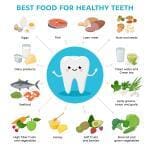Dental hygienists are an integral part of the healthcare system, specializing in the prevention and treatment of oral diseases. They play a crucial role in maintaining and promoting oral health for individuals of all ages. In this comprehensive article, we will delve into the world of dental hygienists, exploring their education, scope of practice, responsibilities, and the importance of their role in oral healthcare.
Education and Training
Dental hygienists undergo rigorous education and training to become licensed professionals. Their educational journey typically includes the following steps:
- Pre-requisites
- Dental Hygiene Program
- Clinical Experience
- Licensure
- Continuing Education
Pre-requisites
Before entering a dental hygiene program, individuals typically need a high school diploma or equivalent and must complete specific science and math coursework.
Dental Hygiene Program
Dental hygiene programs are usually offered at the associate’s or bachelor’s degree level. These programs include both classroom instruction and hands-on clinical experience. Coursework covers subjects like anatomy, physiology, radiography, and dental hygiene techniques.
Clinical Experience
Clinical training is a significant component of dental hygiene programs, allowing students to apply their knowledge and skills in a real dental setting. They work under the supervision of licensed dentists and dental hygienists.
Licensure
After successfully completing an accredited dental hygiene program, graduates must pass the National Board Dental Hygiene Examination and any state or regional clinical board exams to become licensed dental hygienists. Licensure requirements vary by state and may include written and clinical exams.
Continuing Education
Dental hygienists are required to engage in continuing education to stay current with the latest developments in dental hygiene, oral healthcare, and infection control practices.
Scope of Practice
Dental hygienists have a well-defined scope of practice, which can vary from state to state. However, the core responsibilities of dental hygienists generally include:
- Patient Assessment
- Dental Cleanings
- Oral Health Education
- Fluoride Treatments
- Periodontal Care
- X-rays and Diagnostics
- Patient Records
- Screening for Oral Diseases
Patient Assessment
Dental hygienists assess a patient’s oral health by reviewing medical histories, taking X-rays, and conducting oral examinations. They also assess the patient’s gum health, checking for signs of periodontal disease.
Dental Cleanings
One of the primary roles of a dental hygienist is to perform dental cleanings, also known as prophylaxis. They remove plaque, tartar, and stains from a patient’s teeth, helping to prevent cavities and gum disease.
Oral Health Education
Dental hygienists educate patients on proper oral hygiene practices, such as brushing, flossing, and nutrition. They provide advice on maintaining healthy gums and teeth and offer guidance on managing oral health conditions.
Fluoride Treatments
Dental hygienists apply fluoride treatments to strengthen patients’ teeth and prevent tooth decay.
Periodontal Care
Dental hygienists play a crucial role in treating periodontal disease. They may perform root planing and scaling procedures, as well as administer local anesthesia.
X-rays and Diagnostics
They take and develop dental X-rays, which help dentists diagnose dental issues. They may also assist with other diagnostic procedures.
Patient Records
Dental hygienists maintain detailed patient records, including treatment plans, X-rays, and notes on the patient’s oral health progress.
Screening for Oral Diseases
They screen for oral cancers and other diseases, reporting any suspicious findings to the attending dentist.
Importance of Dental Hygienists in Oral Healthcare
The role of dental hygienists is of paramount importance in oral healthcare for several reasons:
- Preventative Care
- Early Detection
- Reducing Healthcare Costs
- Oral Health Education
- Enhanced Overall Health
- Access to Care
Preventative Care
Dental hygienists are at the forefront of preventive oral healthcare. Their regular cleanings and oral health education help patients maintain healthy teeth and gums, preventing the onset of more serious dental issues.
Early Detection
Dental hygienists often detect early signs of dental problems during routine check-ups. Identifying issues like cavities, gum disease, or oral cancers at an early stage can significantly improve treatment outcomes.
Reducing Healthcare Costs
By focusing on preventive care, dental hygienists help reduce the overall healthcare costs associated with oral diseases. Preventing dental issues is more cost-effective than treating advanced problems.
Oral Health Education
Dental hygienists are excellent educators, teaching patients how to take care of their oral health. This empowers patients to make informed decisions about their oral care and lifestyle choices.
Enhanced Overall Health
Poor oral health has been linked to various systemic health issues, including heart disease, diabetes, and respiratory problems. Dental hygienists play a part in promoting overall well-being by maintaining oral health.
Access to Care
Dental hygienists can work in various settings, including private dental offices, community health centers, and schools. This diverse range of settings allows for increased access to oral healthcare services for different populations.
Working Environment and Employment Opportunities
Dental hygienists have the flexibility to work in various healthcare settings, including:
- Private Dental Offices
- Community Health Centers
- Educational Institutions
- Research and Sales
- Nursing Homes and Long-Term Care Facilities
- Prisons and Correctional Facilities
Private Dental Offices
The most common workplace for dental hygienists is in private dental practices. They work closely with dentists to provide patient care.
Community Health Centers
Dental hygienists can work in community health centers, where they often serve underserved populations, providing essential oral health services.
Educational Institutions
Some dental hygienists work in educational institutions, training future dental hygienists or working in public schools to educate students about oral health.
Research and Sales
Opportunities exist for dental hygienists to work in research, product development, and sales roles related to dental and oral health products.
Nursing Homes and Long-Term Care Facilities
Dental hygienists may provide on-site care to residents of nursing homes and long-term care facilities, ensuring that the elderly receive proper oral healthcare.
Prisons and Correctional Facilities
Some dental hygienists work in correctional facilities to address the oral health needs of inmates.
The employment outlook for dental hygienists is generally positive. The demand for their services is expected to grow due to an aging population with increased oral health needs and a greater emphasis on preventative oral healthcare.
Challenges and Ethical Considerations
While dental hygienists provide valuable services, they may face certain challenges and ethical considerations, including:
- Autonomy
- Workload and Stress
- Infection Control
- Ethical Dilemmas
- Continuing Education
Autonomy
The extent of a dental hygienist’s independence in diagnosis and treatment planning can vary by state. Some may face constraints on their ability to perform certain procedures without the direct supervision of a dentist.
Workload and Stress
Like many healthcare professionals, dental hygienists may experience high workloads and job-related stress. Performing detailed, repetitive tasks can be physically demanding.
Infection Control
Dental hygienists must follow strict infection control protocols to ensure patient safety. This includes the use of personal protective equipment, instrument sterilization, and proper handling of hazardous materials.
Ethical Dilemmas
Dental hygienists may encounter ethical dilemmas when advising patients on their oral health, especially if the patient’s choices may impact their overall well-being.
Continuing Education
Staying up-to-date with the latest advancements in oral healthcare requires ongoing education and professional development, which can be time-consuming and costly.
The Future of Dental Hygiene
The field of dental hygiene continues to evolve, with several trends and developments shaping its future:
- Telehealth
- Expanding Scope of Practice
- Teledentistry
- Preventive Care Emphasis
- Geriatric Care
- Diversity and Inclusion
- Technological Advancements
Telehealth
As with many healthcare fields, dental hygiene is embracing telehealth and telemedicine. Dental hygienists can provide oral health consultations and education through virtual platforms, increasing access to care, especially in remote or underserved areas.
Expanding Scope of Practice
Some states are considering expanding the scope of practice for dental hygienists, allowing them to perform certain procedures without direct supervision from a dentist. This can help address the shortage of dental providers in some regions.
Teledentistry
Teledentistry platforms are emerging, enabling dental hygienists to remotely diagnose, consult, and even treat patients. This technology is particularly useful for patients who have limited access to dental care due to geographic or mobility constraints.
Preventive Care Emphasis
The dental industry is increasingly focused on preventive care and patient education. Dental hygienists are at the forefront of this shift, promoting oral health maintenance and early intervention.
Geriatric Care
With an aging population, the demand for geriatric dental care is rising. Dental hygienists can expect to play a more significant role in caring for elderly patients, addressing unique oral health needs in this demographic.
Diversity and Inclusion
Efforts are being made to diversify the dental hygiene workforce to better reflect the demographics of the patient population. Increasing cultural competence among dental hygienists is crucial for addressing the oral health needs of diverse communities.
Technological Advancements
Dental technology is continually advancing, making procedures more efficient and comfortable for patients. Dental hygienists will need to adapt to and stay current with these innovations.
The Role of Dental Hygienists in Public Health
Dental hygienists are not just confined to clinical settings; they also have a significant role in public health. Some of the ways in which dental hygienists contribute to public health include:
- School-Based Programs
- Community Outreach
- Oral Health Advocacy
- Collaboration with Public Health Agencies
- Research and Data Collection
School-Based Programs
Dental hygienists often work in schools, conducting oral health screenings and education to promote good oral hygiene habits among students.
Community Outreach
Dental hygienists participate in community health programs and events, offering free dental check-ups, cleanings, and education to underserved populations.
Oral Health Advocacy
They advocate for policies and initiatives that improve oral healthcare access and affordability. Dental hygienists may lobby for water fluoridation, community water fluoridation, and dental insurance coverage.
Collaboration with Public Health Agencies
Dental hygienists collaborate with public health agencies to develop and implement strategies for oral disease prevention and management.
Research and Data Collection
They may engage in research related to oral health and contribute to data collection efforts that inform public health policy.
Conclusion
Dental hygienists are integral to oral healthcare, playing a vital role in preventing and treating oral diseases, educating patients, and promoting overall well-being. Their education, training, and ethical responsibilities are key components of their profession, allowing them to provide quality care to patients of all ages.
As the field of dental hygiene evolves, dental hygienists are likely to find themselves at the forefront of technological advancements, expanded scopes of practice, and a growing emphasis on preventive care and patient education. Their work is essential not only in clinical settings but also in public health efforts aimed at improving the oral health of communities.
Recognizing the value of dental hygienists and the contributions they make to the healthcare system is crucial. Dental hygiene is a profession that continues to grow, adapt, and respond to the changing needs of patients and the healthcare landscape, making it an essential component of comprehensive healthcare services.





